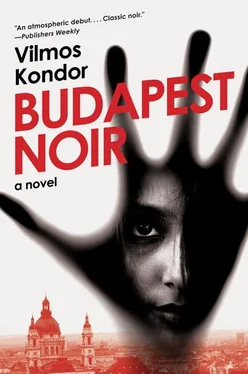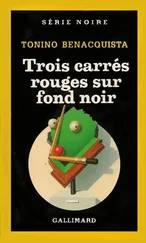“Well, Nuremberg is the hotbed of National Socialists. Hitler’s rallies, the September marches, the Nuremberg laws.”
“What are you actually asking me?” She slid out to the edge of the sofa.
“I am suggesting merely that it can’t be easy for a Hungarian merchant to run a business in the Nazis’ citadel.”
“We import coffee, not fascism.”
“I didn’t suggest that for even a minute,” replied Gordon.
“My husband worked hard to secure the German market. He made many sacrifices. He’s hardly ever home; he spends so much time out there, mainly in Berlin.”
After knocking softly, Anna entered the room carrying a silver tray bearing an entire Meissen china coffee service. She put it on the table and quickly left the room. The woman reached for the coffee pitcher and filled the cups while Gordon continued. “And here is my next question: What will become of your business, your empire? Will your daughter take the reins?”
He might as well have slapped the woman on the face. Her hand stopped in midair, the pitcher trembled. She took a deep breath, set the pitcher back on the tray, and in an icy voice that only confirmed the fear and loathing in her eyes, she replied, “If you want to talk about the business, go find my husband. If it’s our family you’re interested in, it’s best that you leave at once. Hack writers have no business looking into our private affairs. The maid will escort you out.” She stood and left the room without looking back.
Gordon took a sip of the coffee. He didn’t understand what all the fuss was involving Arabia and Meinl. Coffee—black and bitter, plain and simple.
The maid reappeared in the doorway. Gordon put down his cup and followed her out to the vestibule, where the girl helped him put on his jacket. Gordon sized her up. Her hair was braided on two sides; her eyes were blue and big, very big. With her bony hands, she fiddled with her apron. “What happened to Fanny?” he asked quietly.
“Good God, sir, please don’t ask such a thing,” replied the girl with a frightened stare.
“Why not?”
“Because no one here talks about her. I haven’t been here long, but they haven’t even said her name in front of me.”
“How long have you been serving here?”
“Two weeks.”
“And your predecessor?”
“She went back to her village.”
“Which one?”
“Bükkszentkereszt—up north, hours from the city, in the Bükk mountains.”
“Why?”
“I don’t know.”
“Did she have a falling out with your masters?”
“I don’t know,” said the girl, looking about with alarm, “I beg you, sir, please leave.”
“What was her name?”
“Teréz Ökrös,” she replied. “Goodness, she could embroider like a charm. You never saw such pieces, sir.”
“That I believe,” said Gordon. “So what’s up with your master’s daughter? What happened to her?”
The girl turned pale. “Don’t talk so loudly, sir!” She got so nervous that the northern provincial accent that until now had only filtered through suddenly erupted with full force. “I said I don’t know a thing about her. My masters haven’t said a word about her. I was in her room only once, and it was as clean as if no one had ever lived there. They even had it painted over.” She defiantly threw back her head. “Now please leave, sir, because I don’t want them to fire me, too.”
Gordon raised his eyebrows but didn’t ask a thing. He took his hat and stepped out the door. Once outside, he turned around and looked back up at the lovely house. The curtains hung motionless and he saw no movement from within, as if no one was inside.
Gordon boarded a tram on Italian Row and transferred to another on Kálmán Széll Square. He hurried home. Mór unlocked the apartment door from the inside.
“Finally, son,” said the old man with a look of relief. “We were starting to get worried.”
“No problem, Opa. I’m home. Krisztina?”
“She’s working in the living room.”
Gordon took off his jacket and went to her. Krisztina had moved everything meticulously to the side on Gordon’s desk and was sitting there, drawing away. The India ink was flowing effortlessly under her hand.
“So you turned up,” she said, looking up at him.
“That’s right.”
“And what happened?”
“I’ll tell you on the way,” replied Gordon.
“On the way?”
Gordon didn’t answer; he was already standing by the telephone and calling a cab. He was getting so good at using his left hand that he didn’t even need a pencil to dial. “Got it. We’ll be down in ten minutes. Tell him we might even spend the night there, so he should come prepared.” With that, he put down the phone and started rummaging about among the papers on the telephone stand. He pulled out a brochure, dialed again, and reserved a double room for two nights.
“What’s this all about, Zsigmond?” asked Krisztina, standing up.
“I’ll tell you in the car.”
“What?”
“What I found out.”
“And this is so dangerous that we have to leave?”
“It might be,” said Gordon, going over to the closet. “But I’ll need your help, too,” he said, looking her in the eye. “I’ll throw together a few things right away,” he said, and he flung a couple of pieces of clothing onto the bed. “Would you get yourself ready? I’d like to leave as soon as possible.”
Krisztina sighed, then angrily gathered up her drawings and packed away her pencils, pens, and notebooks. Mór meanwhile stood quietly at the kitchen door.
“Opa,” said Gordon, as he turned to his grandfather. “Would you get my suitcase off the top of the closet? I can’t grab it.”
The old man walked over to the closet and pulled down the worn old vulcanized fiber suitcase, which had seen better days. “What have you gotten yourself into now, son?”
“Nothing I can’t climb back out of,” replied Gordon. “Opa, I’ve reached my hand into something that could go who-knows-where. I’m worried for Krisztina and for you, too. I know you don’t want to come with us, because . . .”
“My jams and preserves,” said Mór.
“Them. And you don’t want to travel anywhere else, either. But at least keep the door locked, even when you’re home. Have you bought enough fruits and vegetables?”
“I’ve got apples, pears, and grapes—sure, the grapes are a bit shriveled up by now—but the chestnuts will soon be ripe, too. Why?”
“I won’t be so worried if for a couple of days, just a couple, you didn’t go roaming away from home. You’ve got enough fruit now for canning. And you’ve also said you never have time to write down your recipes.”
Sticking his index finger in his vest pocket, Mór looked at Gordon without a word.
“You’re right,” he finally said. “It wouldn’t hurt if I wrote down the best ones.”
“You see. There was the one from the other day, the apple jam.”
“That,” said the old man with a dismissive wave of the hand, “that was nothing special.”
“It was to me. Write out the recipe. We’ll be back on Wednesday. Maybe sooner.”
When they got down in front of the building on Lovag Street, the taxi was already waiting for them, and behind the wheel was Czövek, as Gordon had requested. The cabbie grinned with satisfaction. “I kiss your hand, miss. I heard we’re off on an outing. Where to?”
“To Lövölde Square,” replied Gordon. With a look of profound disappointment, Czövek put the car into gear and headed off. He didn’t say a word; nor did Krisztina, who drew to the far side of the backseat and stared out at the traffic. Gordon quietly cursed himself for not having had Mór rebandage his hand, but he hadn’t had the time. He’d ask for cold water at the hotel.
Читать дальше
Конец ознакомительного отрывка
Купить книгу












